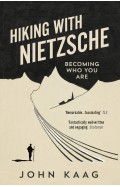KIND: The quiet power of kindness at work
By: Graham Allcott
-
Rs 3,415.50
- Rs 3,795.00
- 10%
You save Rs 379.50.
Due to constant currency fluctuation, prices are subject to change with or without notice.
What if someone told you the key to success was kindness?
While it doesn't always make headlines, there is a growing recognition that kindness is vital to strong performance at work. In the broad range of leadership skills, kindness is inherently quieter, more personal and harder to see - and yes, less interesting or cinematic than controversial tweets and 'bullying boss' behaviour. But kindness builds empathy and trust, which ultimately creates a sense of psychological safety - and that safety leads to more creativity; a better quality of decision-making; safer critical thinking; higher levels of staff loyalty, flexibility and retention; a heightened sense of engagement; and, ultimately, higher productivity and profitability.
In KIND, Graham Allcott explores how we can create work cultures that encourage kindness. He argues that, far from being a 'fluffy' or nebulous idea, kindness and empathy are 21st century superpowers, which can transform any organization into a dynamic environment where people want to work. The author aims to convince the doubters, as well as helping already 'kindful' people, to articulate the power of kindness and make a stronger case for its greater profile in their working environments.
Drawing on psychology and neuroscience as well as management theory and business research, he shows how kindness helps encourage productive and positive work cultures. From busting three important myths that need to be addressed to engage the more cynical reader - or the reader's more cynical colleagues - to covering 'The Eight Principles of Kindfulness at Work', Graham Allcott offers practical advice on how to make kindfulness part of the fabric of your working life so both you and your team can thrive.
What if someone told you the key to success was kindness?
While it doesn't always make headlines, there is a growing recognition that kindness is vital to strong performance at work. In the broad range of leadership skills, kindness is inherently quieter, more personal and harder to see - and yes, less interesting or cinematic than controversial tweets and 'bullying boss' behaviour. But kindness builds empathy and trust, which ultimately creates a sense of psychological safety - and that safety leads to more creativity; a better quality of decision-making; safer critical thinking; higher levels of staff loyalty, flexibility and retention; a heightened sense of engagement; and, ultimately, higher productivity and profitability.
In KIND, Graham Allcott explores how we can create work cultures that encourage kindness. He argues that, far from being a 'fluffy' or nebulous idea, kindness and empathy are 21st century superpowers, which can transform any organization into a dynamic environment where people want to work. The author aims to convince the doubters, as well as helping already 'kindful' people, to articulate the power of kindness and make a stronger case for its greater profile in their working environments.
Drawing on psychology and neuroscience as well as management theory and business research, he shows how kindness helps encourage productive and positive work cultures. From busting three important myths that need to be addressed to engage the more cynical reader - or the reader's more cynical colleagues - to covering 'The Eight Principles of Kindfulness at Work', Graham Allcott offers practical advice on how to make kindfulness part of the fabric of your working life so both you and your team can thrive.
KIND: The quiet power of kindness at work
By: Graham Allcott
Rs 3,415.50 Rs 3,795.00 Ex Tax :Rs 3,415.50
Zubin Mehta: A Musical Journey (An Authorized Biography)
By: VOID - Bakhtiar K. Dadabhoy
Rs 892.50 Rs 1,050.00 Ex Tax :Rs 892.50
The Origins of Political Order From Prehuman Times to the French RevolutioN
By: Francis Fukuyama
Rs 4,045.50 Rs 4,495.00 Ex Tax :Rs 4,045.50
Manning Up: How the Rise of Women Has Turned Men into Boys
By: Kay Hymowitz
Rs 845.75 Rs 995.00 Ex Tax :Rs 845.75
The Obama Syndrome: Surrender At Home War Abroad
By: Tariq Ali
Rs 1,100.75 Rs 1,295.00 Ex Tax :Rs 1,100.75
The Quest For Meaning: Developing A Philosophy Of Pluralism
By: Tariq Ramadan
Rs 1,185.75 Rs 1,395.00 Ex Tax :Rs 1,185.75
No similar books from this author available at the moment.
Pierre Cardin - Making Fashion Modern
By: Jean-Pascal Hesse
Rs 14,395.50 Rs 15,995.00 Ex Tax :Rs 14,395.50
I Think, Therefore I Am: All the Philosophy You Need to Know - Paperback
By: Lesley Levene
Rs 647.50 Rs 1,295.00 Ex Tax :Rs 647.50
Hiking with Nietzsche: Becoming Who You Are
By: John Kaag
Rs 2,965.50 Rs 3,295.00 Ex Tax :Rs 2,965.50
Zubin Mehta: A Musical Journey (An Authorized Biography)
By: VOID - Bakhtiar K. Dadabhoy
Rs 892.50 Rs 1,050.00 Ex Tax :Rs 892.50
KIND: The quiet power of kindness at work
By: Graham Allcott
Rs 3,415.50 Rs 3,795.00 Ex Tax :Rs 3,415.50














-120x187.jpg?q6)





-120x187.jpg?q6)











